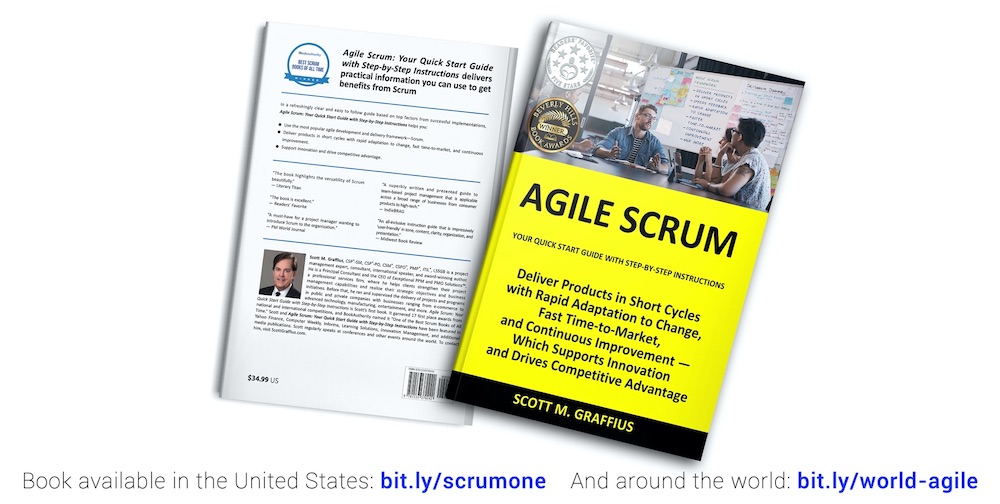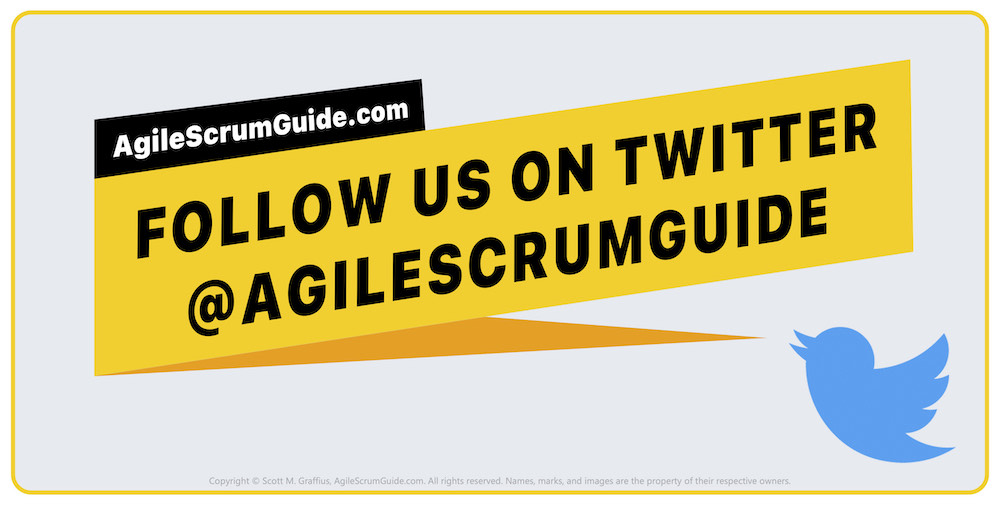#FutureOfAgile
The Future of Agile
10 April 2023


Agile Workflows

A Brief Overview of Agile
Organizations are increasingly adopting Agile approaches — such as Scrum, Kanban, SAFe, and others — to develop products and services. Some of the top reasons are:
- Flexibility: Agile approaches prioritize flexibility and the ability to adapt to changing requirements and circumstances easily. That’s advantageous in today's fast-paced business environment.
- Faster Time-to-Market: Agile approaches emphasize quick delivery of working products or services, which enables businesses to rapidly respond to market demands and gain a competitive edge.
- Customer-centric: Agile approaches focus on delivering value to customers, which helps businesses to better understand their needs and deliver products or services that meet those needs.
- Collaboration: Agile approaches encourage collaboration and communication between team members, which helps to create a more cohesive and productive team.
- Continuous improvement: Agile approaches prioritize continuous improvement, allowing teams to reflect on their performance and adjust their approach as needed to improve productivity and efficiency.
The Future of Agile
As technology advances and business environments become more complex, Agile remains a powerful approach for organizations to stay competitive and deliver value to their customers. This article explores trends shaping the future of Agile and the key factors that contribute to its success.
Scaling Agile
One of the key trends shaping the future of Agile is scaling. Many organizations are looking for ways to scale Agile across teams, departments, and even the entire organization. Doing so involves adopting frameworks like the Scaled Agile Framework (SAFe), Large-Scale Scrum (LeSS), Disciplined Agile (DA), and others to coordinate and align multiple Agile teams to achieve common goals. Scaling Agile is essential to ensure that Agile practices are consistent across the organization, and that teams are working towards the same objectives.
Agile and DevOps
DevOps is another trend shaping the future of Agile. DevOps is a natural extension of Agile principles and values. DevOps aims to integrate development and operations teams to improve collaboration, streamline processes, and accelerate software delivery. As organizations increasingly embrace DevOps, Agile teams will need to incorporate DevOps practices into their workflow. This means that Agile teams will need to work more closely with operations teams and adopt new tools and practices to manage infrastructure and deployment.
Agile for Non-Tech Projects
Agile approaches were initially developed for software development projects. However, Agile principles and values can be applied to non-tech projects as well, such as marketing, HR, and finance. As organizations look for ways to improve their processes and adapt to change quickly, Agile will continue to gain traction in non-tech areas.
Agile with AI
Artificial intelligence (AI) is transforming the way businesses operate. Agile teams can leverage AI tools and techniques to improve software quality, automate testing, and optimize project management. As AI continues to evolve, Agile teams will need to adapt their processes and practices to best incorporate AI. Agile teams will need to work closely with data scientists and machine learning experts to identify opportunities to use AI in their projects.
Agile for Remote Teams
The COVID-19 pandemic has accelerated the trend of remote work. Agile teams need to adapt their processes to work effectively in a remote environment. This includes adopting new collaboration tools, establishing clear communication channels, and adapting Agile events (previously referred to as ceremonies) to work in a virtual setting.
Conclusion
The future of Agile is bright. Organizations are increasingly adopting Agile approaches to the development of products and services. By embracing trends — such as Scaling Agile, Agile and DevOps, Agile for non-tech, Agile with AI, and Agile for remote teams — and advances in technology, organizations can improve their Agile implementations and competitive advantage.


About Scott M. Graffius

Scott M. Graffius, PMP, SA, CSP-SM, CSP-PO, CSM, CSPO, SFE, ITIL, LSSGB is an agile project management practitioner, consultant, multi-award-winning author, and international keynote speaker. He is the Founder of Exceptional PPM and PMO Solutions™ and subsidiary Exceptional Agility™. He has generated over $1.9 billion of business value in aggregate for Global Fortune 500 businesses and other organizations he has served. Graffius and content from his books (Agile Scrum: Your Quick Start Guide with Step-by-Step Instructions and Agile Transformation: A Brief Story of How an Entertainment Company Developed New Capabilities and Unlocked Business Agility to Thrive in an Era of Rapid Change), talks, workshops, and more have been featured and used by businesses, professional associations, governments, and universities. Examples include Microsoft, Oracle, Broadcom, Cisco, Gartner, Project Management Institute, IEEE, Qantas, National Academy of Sciences, United States Department of Energy, New Zealand Ministry of Education, Yale University, Tufts University, and others. He has delighted audiences with dynamic and engaging talks and workshops on agile, project management, and technology leadership at 84 conferences and other events across 25 countries. Visit https://ScottGraffius.com to learn more.
Connect with Scott on:


About Agile Scrum: Your Quick Start Guide with Step-by-Step Instructions

Shifting customer needs are common in today's marketplace. Businesses must be adaptive and responsive to change while delivering an exceptional customer experience to be competitive.
There are a variety of frameworks supporting the development of products and services, and most approaches fall into one of two broad categories: traditional or agile. Traditional practices such as waterfall engage sequential development, while agile involves iterative and incremental deliverables. Organizations are increasingly embracing agile to manage projects, and best meet their business needs of rapid response to change, fast delivery speed, and more.
With clear and easy to follow step-by-step instructions, Scott M. Graffius's award-winning Agile Scrum: Your Quick Start Guide with Step-by-Step Instructions helps the reader:
- Implement and use the most popular agile framework―Scrum;
- Deliver products in short cycles with rapid adaptation to change, fast time-to-market, and continuous improvement; and
- Support innovation and drive competitive advantage.
Hailed by Literary Titan as “the book highlights the versatility of Scrum beautifully.”
Winner of 17 first place awards.
Agile Scrum: Your Quick Start Guide with Step-by-Step Instructions is available in paperback and ebook/Kindle worldwide. Some links by country follow.
- 🇦🇺 Australia
- 🇦🇹 Austria
- 🇧🇪 Belgium
- 🇧🇷 Brazil
- 🇨🇦 Canada
- 🇨🇿 Czech Republic
- 🇩🇰 Denmark
- 🇫🇮 Finland
- 🇫🇷 France
- 🇩🇪 Germany
- 🇬🇷 Greece
- 🇭🇺 Hungary
- 🇮🇳 India
- 🇮🇪 Ireland
- 🇮🇱 Israel
- 🇮🇹 Italy
- 🇯🇵 Japan
- 🇱🇺 Luxembourg
- 🇲🇽 Mexico
- 🇳🇱 Netherlands
- 🇳🇿 New Zealand
- 🇳🇴 Norway
- 🇪🇸 Spain
- 🇸🇪 Sweden
- 🇨🇭 Switzerland
- 🇦🇪 UAE
- 🇬🇧 United Kingdom
- 🇺🇸 United States
- 🌏 More countries

About Agile Transformation: A Brief Story of How an Entertainment Company Developed New Capabilities and Unlocked Business Agility to Thrive in an Era of Rapid Change

Thriving in today's marketplace frequently depends on making a transformation to become more agile. Those successful in the transition enjoy faster delivery speed and ROI, higher satisfaction, continuous improvement, and additional benefits.
Based on actual events, Agile Transformation: A Brief Story of How an Entertainment Company Developed New Capabilities and Unlocked Business Agility to Thrive in an Era of Rapid Change provides a quick (60-90 minute) read about a successful agile transformation at a multinational entertainment and media company, told from the author's perspective as an agile coach.
The award-winning book by Scott M. Graffius is available in paperback and ebook/Kindle worldwide. Some links by country follow.
- 🇦🇺 Australia
- 🇦🇹 Austria
- 🇧🇷 Brazil
- 🇨🇦 Canada
- 🇨🇿 Czech Republic
- 🇩🇰 Denmark
- 🇫🇮 Finland
- 🇫🇷 France
- 🇩🇪 Germany
- 🇬🇷 Greece
- 🇮🇳 India
- 🇮🇪 Ireland
- 🇯🇵 Japan
- 🇱🇺 Luxembourg
- 🇲🇽 Mexico
- 🇳🇱 Netherlands
- 🇳🇿 New Zealand
- 🇪🇸 Spain
- 🇸🇪 Sweden
- 🇨🇭 Switzerland
- 🇦🇪 United Arab Emirates
- 🇬🇧 United Kingdom
- 🇺🇸 United States
- 🌏 More countries

Let's Connect

Connect with AgileScrumGuide.com on:
And connect with agile project management practitioner, consultant, award-winning author, and international speaker Scott M. Graffius on:

This article was first published at https://ScottGraffius.com.
The short link for this article is: https://bit.ly/asg-future
© Copyright 2023 Scott M. Graffius, AgileScrumGuide.com. All rights reserved. This material may not be published, broadcast, rewritten or redistributed without the express written permission of Scott M. Graffius/AgileScrumGuide.com.
